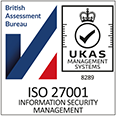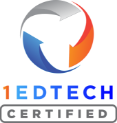Jennifer Yessis, Associate Professor and Associate Director and Katherine Lithgow, Senior Educational Developer, Integrative & Experiential Learning from The University of Waterloo were speakers at PebbleBash 2024 and presented ‘Integrating PebblePad to adapt the Student-Led, Individually Created Course Model into a Master of Public Health Capstone Course: What we learned.’ Click here to watch the video with the full transcript or if you’re having trouble viewing the video above.
Want to know more about SLICCs? Check out these related resources:
- SLICCs On Demand Webinar
- Simon Riley from The University of Edinburgh spoke about SLICCs at The 2023 MiniBash Event
- Simon Riley then spoke again about SLICCs at PebbleBash 2024
- Short 1 minute video on PebbleVision about SLICCs
- Case study – The University of Waterloo – ePortfolio assessment strategies for professional competency development
-START TRANSCRIPT–
So as Katherine said, my name is Jennifer Yessis, and I’m the associate director of the professional graduate programs in the School of Public Health Sciences at University of Waterloo in in Ontario, Canada.
And Katherine is a senior educational developer, integrative and experiential learning centre for teaching excellence and really just has been so supportive. And part of the reason that I have, been able to I feel like I’ve come so far and it’s all because of Katherine.
So in Ontario, Canada, it’s now common practice to be reflective about the history of the land we’re working on, because although we’re settlers on the land, we were not the first inhabitants. And I just wanted to take a moment to acknowledge that the University of Waterloo is situated on the Haldimand Tract, the land granted, to the Haudenosaunee peoples of the six nations of the Grand River. Now while that may be so, it really wasn’t the British’s land to give in the first place. And over the last number of years, we have been on a journey to understand the impacts of colonization, to the indigenous people, who were displaced from their land, homes, and culture.
So, just to provide a bit of an overview of today’s session, we’re going to provide a little bit of context, share a bit about the course that we’re talking about. Catherine’s gonna share a little bit more about the student led individually created courses reflective framework, which I’m sure some of you have also adapted and used, and developed.
We’re also gonna share, a little bit about our use of PebblePad in the course for three things, ePortfolio, individual workbook using the adapted SLICC framework, and for peer review. And we are going to share the impact of using the slick in this context from a light grant where we were able to study it and provide a little bit of time for questions at the end.
-END TRANSCRIPT–







